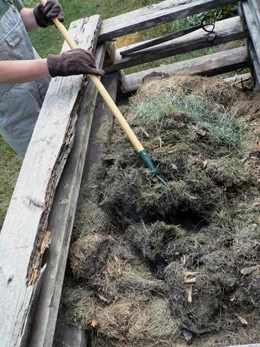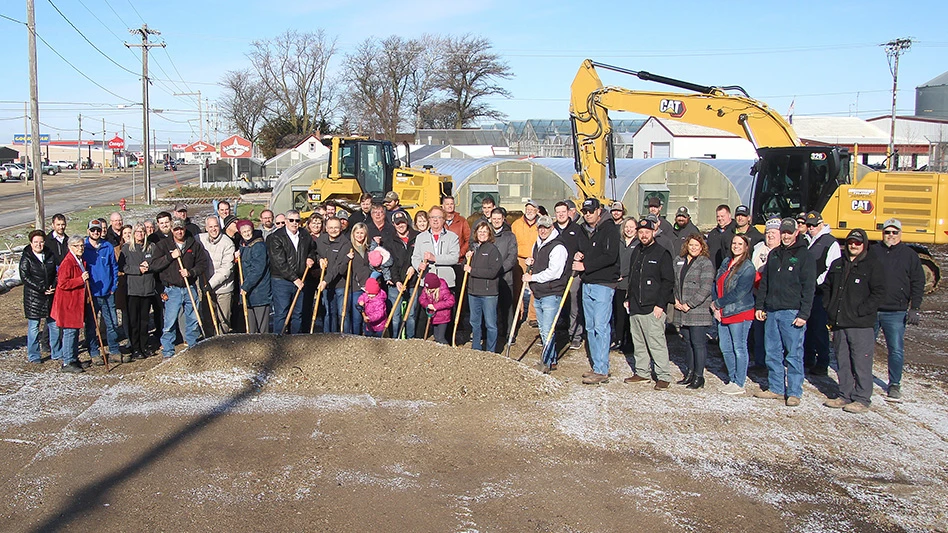
 We can all agree that compost is good for the garden, right? Chock full of nutrients, beneficial micro-organisms—a plant's best friend. Why, then, is the act of composting not also achieving that exalted status?
We can all agree that compost is good for the garden, right? Chock full of nutrients, beneficial micro-organisms—a plant's best friend. Why, then, is the act of composting not also achieving that exalted status?
Though the benefits are great, starting and maintaining a compost pile does not yield instant gratification. Consumers seem to be going into the process with unrealistic expectations. And garden retailers are having problems selling them on the advantages of home composting.
Andrew Cook, vice president at Exaco Trading Co., (www.exaco.com) has seen evidence of this on the trade-show floor. American garden retailers have told him they're not selling many compost bins. Reasons vary, including low consumer demand, lack of space and not having enough staff to explain (and sell) composting devices.
Yet the desire to be "green"—in which compost plays a starring role—remains strong. What accounts for this discord?
|
Information clinches the sale Ralph Rhoads with Nature's Footprint (http://naturesfootprintinc.com) said thorough instructions and point-of-sale information are crucial when selling composters. This is something that was top-of-mind when his company created materials to accompany its Worm Factory Worm Bin. "We designed this to come with a 16-page manual for men who already know it all, and hate to read instructions," Rhoads quipped. "And we included a DVD." For the point-of-sale, the company has redesigned its packaging so that the unit's specs and instructions are on all sides of the box. Nature's Footprint also provides customer handouts retailers can display. "A retailer can be assured when they sell our product, they don't need full knowledge of every detail," Rhoads said. "We've gone out of our way to explain it. What I'm saying to retailers—at least for our product—is the vast majority of questions are answered." |
Stumbling blocks
Cook has closely scrutinized this problem, and uncovered some of the challenges retailers must overcome to make compost equipment a winning category in their stores.
Past experiences. If composting hasn't worked for gardeners in the past, they tend to go online and complain about it. These negative comments often turn up when a newbie is doing preliminary research on the process. Not very encouraging, to say the least.
"Too many customers do it wrong and end up complaining about the experience," Cook said. "In turn, this is leading to a significant group of potential customers not wanting to go through the experience in the first place. And, those who did it once don't want to try again. Only a small but serious group is fully committed and they keep buying new [compost bins] as they need more units."
Lack of education. Composting is not a "set it and forget it" endeavor. And consumers need to know this.
"Due to many misleading sales pitches, the average consumer trying to make compost today thinks that compost bins are 'composters' that make compost for them," Cook said. "Some way or another they are expecting a compost bin to do all the work, and do it in 30, 60 and 90 days. Obviously, this is not correct."
Breakage. A basic tenant of composting is the material must be turned. Sounds simple, but this step can often result in bin breakage.
"It's because customers are trying to turn their 'compost' while it is inside their basic compost bin with a digging or compost fork—and putting significant leverage on a side-wall while doing so," Cook said. "In the process they either break a side panel or cause the walls to come apart at the vertical edges, and once this happens the units are no longer useable."
The take away? A dedicated compost-mixing tool is a must—as well as a bin made from sturdy components. Bundle these items together, and you've got a retail winner.
Make it work
Now that you know the problems, you're equipped to tackle this product category with renewed vigor. After talking with retailers across the globe, Cook established these selling points:
- Sell composting as an environmental responsibility.
- Provide better information. Extol Rule No. 1—Don't force the process. It is best to collect composting material this year and use it next year, or even better use it the following year.
- Promote the use of multiple units: Do not mix new waste with old.
- Make it clear that customers do not have the get their hands dirty. They do not have to work the mature compost into the ground. Simply spread it with a fork over their lawn and/or flower beds.
- Offer a range of products including: kitchen waste bins, compost mixing tools, compost activator, biodegradable bags, ordinary "four walls and a lid" bins (in at least two different qualities), specialty products—latest new designs—such as three-chamber units.
- Don't try to compete against mass merchants. Instead offer different models—particularly specialty units.

Explore the December 2011 Issue
Check out more from this issue and find your next story to read.
Latest from Garden Center
- The HC Companies, Classic Home & Garden merge as Growscape
- Terra Nova releases new echinacea variety, 'Fringe Festival'
- Eason Horticultural Resources will now officially be known as EHR
- ScottsMiracle-Gro transfers cannabis subsidiary to focus on core lawn and garden business
- Should we start calling natives 'eco-beneficial plants'?
- Ellen Mackenbach-Lakeman appointed new CEO of Dümmen Orange
- $7,500 in therapeutic garden grants available from National Garden Bureau
- The Growth Industry Episode 3: Across the Pond with Neville Stein





